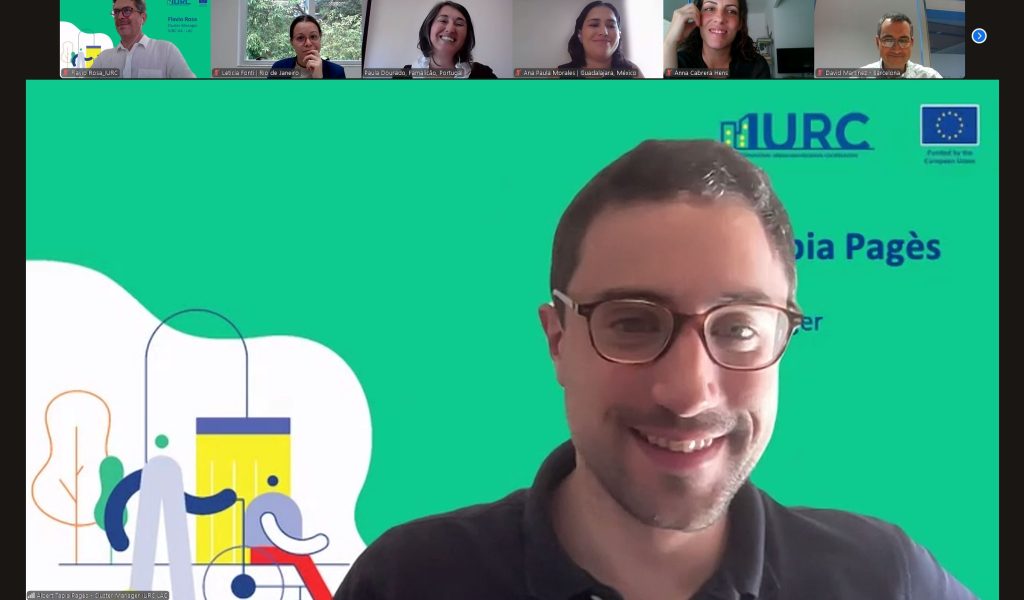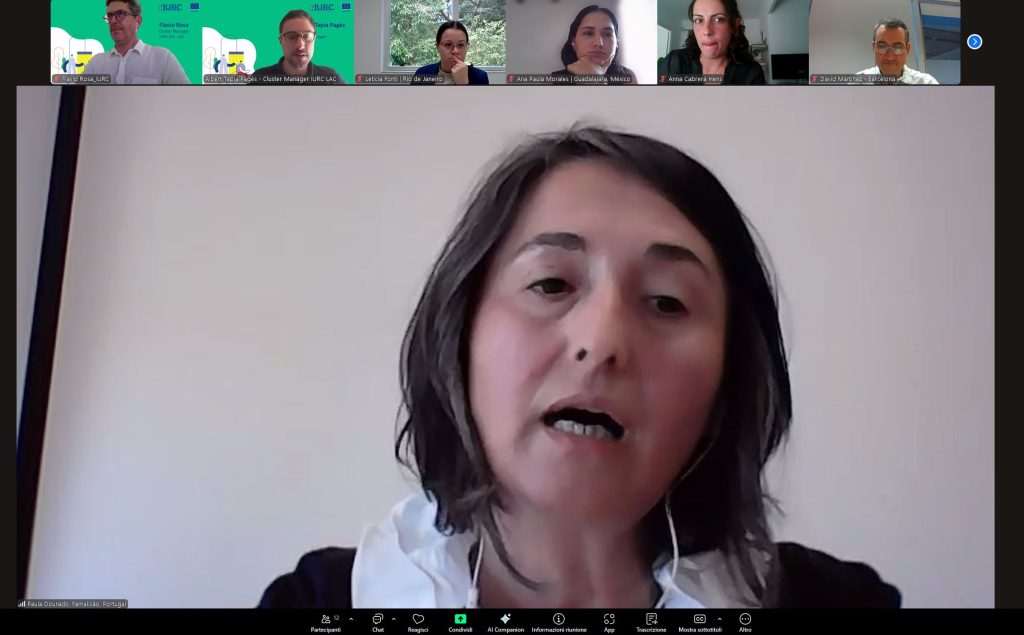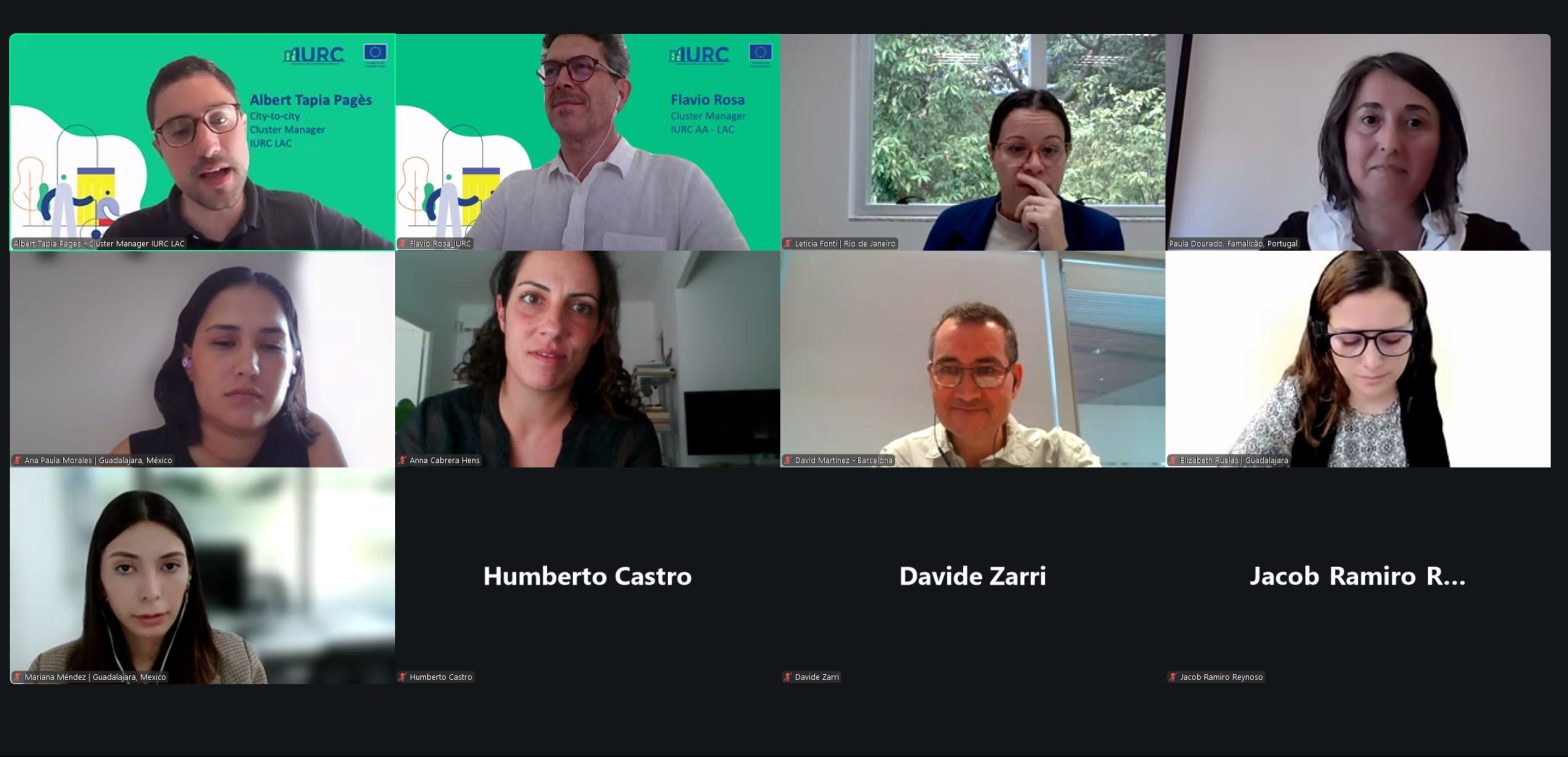On 23 September 2025, the International Urban and Regional Cooperation (IURC) Latin America and the Caribbean programme hosted its third webinar, this time dedicated to urban innovation. The session gathered 17 participants for technical discussions and city presentations that highlighted how digital tools, sustainability initiatives, and collaborative governance are shaping the future of urban areas. The exchange served as preparation for the upcoming Smart City Expo World Congress in Barcelona, where participating cities will deepen cooperation through the IURC framework.
The webinar was introduced by Albert Tapia, cluster manager for IURC LAC, who explained the structure of the urban innovation cluster and emphasized the importance of building partnerships before the Barcelona event. Participants were encouraged to explore the IURC Knowledge Library and Portico platform, and were reminded that while cities can participate in multiple clusters, only one pilot action will be supported in depth.
Famalicão’s Urban Innovation Journey
Paula Dourado presented Famalicão (Portugal), a European Entrepreneurship Region Award winner, with strong industrial roots and a clear focus on the green transition. She outlined four urban innovation challenges and highlighted best practices such as the Made IN Famalicão Program, the Created In Strategy, and forward-looking strategic planning initiatives. Education was presented as a cornerstone of the city’s transformation, supported by a robust network of ECO schools that combine sustainability awareness with youth development.
Paula also shared Famalicão’s commitment to the 15-minute city model, which will be further explored in the next IURC mobility webinar, stressing how compact urban design strengthens resilience, sustainability, and quality of life.


Guadalajara’s Metropolitan Innovation
Ana Paula Morales presented the Metropolitan Area of Guadalajara (Mexico), a city of over five million people with a unique governance model. She shared three best practices:
- the Metropolitan Viewer, a digital platform ensuring transparency in urban regulation,
- Metropolitan Son, addressing data fragmentation,
- and the integration of AI, IoT, and big data for emergency and urban management systems.
She highlighted the challenges of incorporating new technologies while ensuring environmental and financial sustainability. Ana also presented a unified flood risk map, helping citizens navigate hazards and guiding infrastructure investment. Interest was expressed in learning from other cities’ applications of digital twins, AI, and citizen participation tools to strengthen urban resilience and inclusivity.

Barcelona’s Innovation District and Digital Tools
David Martinez shared Barcelona’s experiences, highlighting challenges such as climate change, housing affordability, and demographic pressures. He described 22@Barcelona, the city’s renowned innovation district, which serves as a testing ground for digital technologies, urban planning strategies, and participatory platforms such as Decidim (DCD).
Barcelona is also advancing the use of digital twins, sustainable construction materials, and open data systems to strengthen its resilience. Martinez stressed the importance of the quadruple helix model—bringing together academia, businesses, public authorities, and citizens—to ensure that innovation serves as a driver for inclusive and sustainable growth.

Rio de Janeiro’s Operational and Resilience Center
Leticia Fonti presented Rio’s Operational and Resilience Center, which uses real-time data to monitor city operations and assess risks. Data visualization tools support decision-making for mobility, safety, and environmental risks. She emphasized the role of collaboration with universities and research centers to develop robust tools that directly benefit citizens.

Rio’s experience echoed themes raised by Guadalajara and Barcelona, especially regarding flood risk management, transparency, and decision-support systems, reinforcing the value of cross-regional collaboration through IURC.
The session concluded with discussions on cooperation opportunities, the role of academic partnerships in developing new platforms, and the importance of identifying peer cities before the Barcelona Smart City Expo World Congress. Participants were encouraged to access presentations and materials on the IURC Cloud, while upcoming webinars on mobility and transport and urban regeneration & social cohesion were announced.
